When Vanderbilt Law School professors Kevin Stack and Ganesh Sitaraman were researching their 2023 article advocating for the professional licensure of election administrators, Heard Libraries’ Keri Stophel is among those they turned to for help.
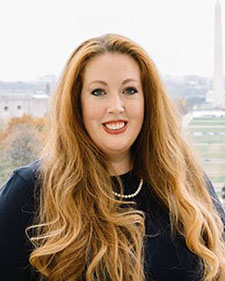
Stophel, a research services law librarian at the Alyne Queener Massey Law Library, routinely performs in-depth state and federal regulatory research in support of faculty members’ work. In her collaboration with Stack and Sitaraman, she developed methodologies to search for relevant statutes, regulations, policy documents and guidance about election administration, as well as the scope of training requirements across the country. Stophel also organized and surveyed other materials, such as election audit reports and processes, and found additional secondary sources on various regulatory topics.
Her contributions were integral to the writing of “Election Administration as a Licensed Profession,” published in Wisconsin Law Review by Stack, the Lee S. and Charles A. Speir Professor of Law, and Sitaraman, the New York Alumni Chancellor’s Professor of Law. In their article, they argue that election administrators should be subject to professional licensure, much the same way doctors and lawyers are, which would expand the requirements for election officials’ training, enhance their professional identification, and reinforce norms of reliability and impartiality. “Such a reform meets our moment,” write the authors in their introduction, citing how licensure could greatly improve public confidence in the integrity of U.S. elections.
Stophel was indispensable to the process, Stack said. “Keri is able to carefully assemble hard-to-find information about state processes and laws. It is hard to imagine attempting to make claims about state practices without her help.”
Stophel’s research on the topic also helped to inform the fourth edition of The Regulatory State, a textbook co-authored by Stack, Lisa Bressman, the David Daniels Allen Distinguished Professor of Law, and Edward Rubin, University Distinguished Professor of Law and Political Science; an article in the Iowa Law Review, “Representative Rulemaking,” by Stack and Jim Rossi, the Judge D.L. Lansden Professor of Law; and a forthcoming article concerning state election regulation powers.
Translating research into knowledge
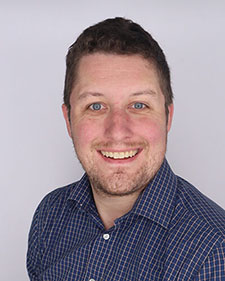
This collaboration highlights an important facet of the academic librarian’s role: leveraging research expertise to find and organize information and evaluate its quality, accuracy and validity to bolster faculty scholarship. In essence, librarians are information specialists who help to translate research into knowledge that has practical and far-reaching applications.
Embedding librarians at critical points in the research lifecycle at Vanderbilt is a guiding mission of the Heard Libraries and the focus of the libraries’ Research Engagement Committee.
“Our goal is, essentially, to systematize active research engagement between faculty and librarians,” said Joshua Borycz, chair of the committee and librarian for STEM research at the Sarah Shannon Stevenson Science and Engineering Library. “We provide support and training opportunities to librarians, and we are developing a website and information on services for faculty. Ideally, we want to make it so that active outreach and engagement with faculty about their research are just as integrated into the work life of librarians as instruction.”
Improving patient care
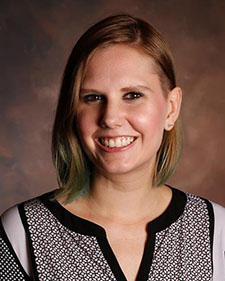
Having the most up-to-date research is vital in evidence-based nursing practice. Rachel Lane Walden works closely with the Vanderbilt University Medical Center Evidence-Based Practice and Nursing Research Committee to facilitate research activities with the aim of improving patient care.
As a committee member, Walden, assistant director for research and education services at the Annette and Irwin Eskind Family Biomedical Library, provides training and consultations on how to craft research questions, search the literature, and use citation managers and other software tools. This year, the committee is also designing a repository for research-based practice nursing projects and is currently creating a proposal for that initiative.
“Rachel’s commitment to supporting evidence-based nursing practices and research is demonstrated time and again with her involvement on the committee, her outside-the-nursing-box thinking, and her willingness to educate, train and present when needed,” said Stacy Stark, co-chair of the committee and principal quality and patient safety advisor for Vanderbilt Behavioral Health and Quality, Safety and Risk Prevention. “Rachel is an invaluable resource for the committee and for nurses at VUMC, and her depth of knowledge and expertise cannot be overstated.”
Fostering connections
Staff in the Heard Libraries’ Digital Lab are using their unique expertise in harnessing data to organize, visualize—and, ultimately, to strengthen—professional and scholarly networks.
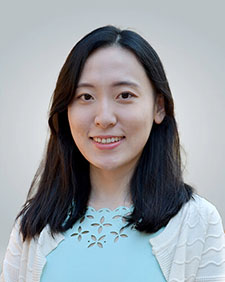
Working in partnership with Professor of Otolaryngology Alex Gelbard, Librarian for Scholarly Communications Shenmeng Xu and Data Science and Data Curation Specialist Steven Baskauf embarked on a project to map the large collaborative network of otolaryngologists practicing in the U.S. The project spanned two years and involved input from additional Vanderbilt faculty, medical school trainees, students and staff.
“Libraries have always connected surgeons,” said Gelbard, the Robert H. Ossoff Endowed Director of Research at VUMC’s Center for Complex Airway Reconstruction. “Historically, they were essential to the flow of ideas and experimental results between authors and readers. Central to this experience were the professional librarians who identified, collected and organized this information.
“However, with the rise of new digital tools to connect each other directly, newer structures linking academic surgeons have emerged,” he said. “At the individual level, a small set of influencers with high measures of social connectivity can disproportionately influence large populations in different contexts. At the collective level, network ties may play an important role in fostering the global spread of information.”
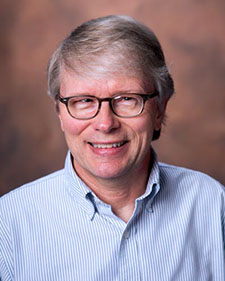
The team used peer-reviewed manuscript co-authorships to define network connections, then Xu and Baskauf utilized emerging tools in network analysis to explore, visualize and quantify the relationships between faculty physicians in accredited otolaryngology programs. The results provide a comprehensive new methodology to examine the interrelationships, influence and impact of individual surgeons, grouped networks and sub-specialties in academic otolaryngology. Their work was presented at a meeting of The Triological Society earlier this year, and Gelbard and his team have applied for a Digital Lab Seed Grant to develop the project further.
“Shenmeng and Steve leveraged both their technologic expertise in data acquisition and network analysis, along with their professional commitment to understanding the movement of ideas across academics, to make this project possible,” Gelbard said. “With this work, the team showed that quantitative measures of social connectedness in physician networks correlate with academic impact, and collaborative interactions within the academic community are strongly shaped by sub-specialty affiliation and academic institution.”
For more news and information about the Jean and Alexander Heard Libraries, visit library.vanderbilt.edu.